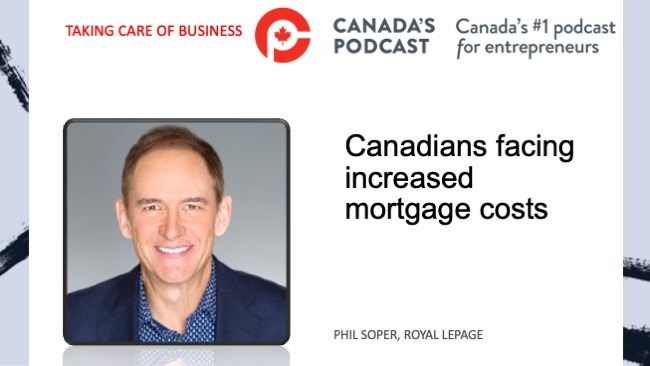Canada’s annual inflation rate rose to 4.0% in August, following a 3.3% increase in July, according to a report released Tuesday by Statistics Canada.

Gustavo Fring
“The headline acceleration was largely the result of higher year-over-year prices for gasoline in August (+0.8%) compared with July (-12.9%). Excluding gasoline, the CPI rose 4.1% in August, matching the 4.1% increase in July,” said the federal agency.
“In addition to facing higher energy prices, Canadians paid more for rent and mortgage interest in August. Moderating the all-items CPI were declines in prices for travel-related services and a smaller increase in food prices compared with the previous month.
“On a monthly basis, the CPI was up 0.4% in August, following a 0.6% gain in July. The monthly slowdown was mainly driven by travel tours (-6.4%) and air transportation (-6.9%), as prices fell month over month following the peak of summer travel demand in July. On a seasonally adjusted monthly basis, the CPI rose 0.6%.”
The report said that although year-over-year price growth for groceries slowed in August, price levels remained elevated. On a year-over-year basis, prices for food purchased from stores rose 6.9% in August compared with an 8.5% increase in July. On a monthly basis, prices for groceries were down 0.4% in August.
“Prices for fresh fruit (+0.2%), cereal products (+9.8%), and fresh or frozen chicken (+8.9%) increased at a slower year-over-year pace in August compared with July, contributing to the deceleration in grocery prices. Conversely, consumers paid more for fresh or frozen beef (+11.9%), coffee and tea (+9.0%), as well as for sugar and confectionery (+10.9%),” it said.
Douglas Porter, Chief Economist with BMO Economics, said things just got a lot more interesting for the Bank of Canada, and most definitely not in a good way.
“We all knew that the extended back-up in gasoline prices was going to be a headache for headline CPI and inflation expectations, but the inconvenient truth is that core has suddenly heated up as well. We will note that even excluding mortgage interest costs, prices are now up 3.2% y/y, or above the target band. There’s still lots of data to go before the Bank next decides on rates (October 25), including another swing at the CPI. Unfortunately, we suspect that with oil firing higher and core inflamed again, that report will be no better than today’s—second verse, same as the first, a little bit louder and likely a little bit worse,” he said.
Leslie Preston, Managing Director & Senior Economist with TD Economics, said headline inflation moving back up to 4% on higher energy prices would likely be tolerated by the Bank of Canada.
“But, core inflation measures heating back up to 4% y/y, and 4.5% on a three month annualized basis is going to ring some alarm bells at the Bank,” she said.
“August’s inflation reading stands in contrast to other measures that have shown momentum cooling in Canada’s economy. The housing market, and new home construction cooled in August, and the unemployment rate has risen half a percentage point over the past few months. Fortunately, the Bank of Canada will see another inflation report before it’s next rate decision on October 25th. We expect further signs of slowing will help the Bank to continue to stand on the sidelines, as outlined in our recent forecast. However, today’s inflation report has raised the odds they may need to make another move.”
Andrew Grantham, Senior Economist with CIBC Capital Markets, said for the third quarter as a whole, inflation is running well ahead of the 3.3% forecast from the Bank of Canada’s July MPR, albeit partly because that projection was based on WTI oil prices of $75/bbl which is well below current levels.
“The Bank will therefore have some tough decisions to make at upcoming meetings. While the stall in the economy in Q2 and modest rise in the unemployment rate are indicators that excess demand is diminishing, which should give policymakers comfort that inflation will come down in the future, they will need to balance that against evidence that current inflationary pressures remain stronger than previously anticipated,” he said.

Mario Toneguzzi
Mario Toneguzzi is Managing Editor of Canada’s Podcast. He has more than 40 years of experience as a daily newspaper writer, columnist, and editor. He was named in 2021 as one of the Top 10 Business Journalists in the World by PR News – the only Canadian to make the list)
About Us
Canada’s Podcast is the number one podcast in Canada for entrepreneurs and business owners. Established in 2016, the podcast network has interviewed over 600 Canadian entrepreneurs from coast-to-coast.
With hosts in each province, entrepreneurs have a local and national format to tell their stories, talk about their journey and provide inspiration for anyone starting their entrepreneurial journey and well- established founders.
The commitment to a grass roots approach has built a loyal audience on all our social channels and YouTube – 500,000+ lifetime YouTube views, 200,000 + audio downloads, 35,000 + average monthly social impressions, 10,000 + engaged social followers and 35,000 newsletter subscribers. Canada’s Podcast is proud to provide a local, national and international presence for Canadian entrepreneurs to build their brand and tell their story.





